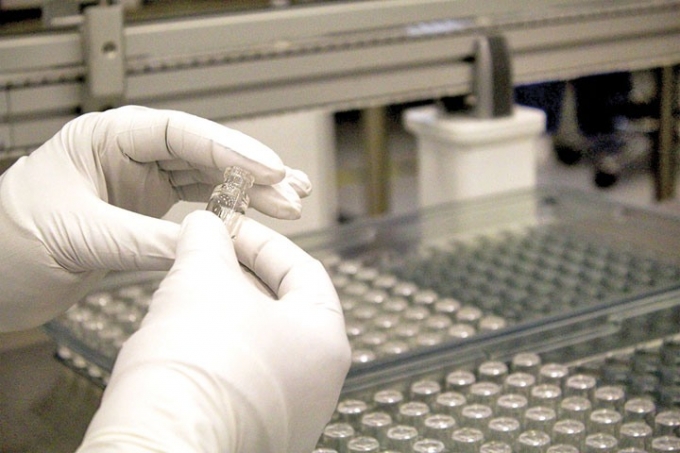As drug companies work feverishly to develop a vaccine for COVID-19, UCSB professor Glenn Fredrickson has advised SiO2, a U.S. company, in developing a new state-of-the-art patented materials coating for vials and syringes.
The effort is crucial to the safe and swift distribution of a future COVID-19 vaccine, according to SiO2, an advanced materials science corporation.
“The nation can produce all the vaccines we want, but we must have appropriate containers to store them and deliver them to patients safely,” Dr. Robert S. Langer, institute professor at MIT and advisor to SiO2, explained in a news release.
“Many drug development and drug formulation innovations can be limited due to variables associated with traditional glass vials and syringes,” Dr. Langer said. “The SiO2 vials and syringes eliminate these variables and allow drug development partners to bring their innovations to life.”
In addition to being on the faculty with the UCSB Chemical Engineering Department, Dr. Fredrickson is one of the roughly eight expert advisors for SiO2. As an advisor, Dr. Fredicickson has worked with professionals from other major U.S. research institutions such as Harvard University, UC Berkeley, the University of Chicago and the Massachusetts Institute of Technology on the SiO2 project.
After years of research, their efforts in helping the company have been successful. According to SiO2’s press release this week, the company just received a government grant from the Advanced Research and Development Authority (BARDA) of $143 million. The grant will be used to increase production of the company’s patented, “primary packaging platform for storing novel coronavirus (SARS-CoV-2) vaccines and therapeutics.”
Dr. Fredrickson told the News-Press he believes the vials are “perfectly timed for certain COVID vaccines” and that the “grant from the government is really gonna help grow manufacturing capabilities when there is a vaccine.”
“The SiO2 vials solve significant challenges in the commercialization of vaccines and biological drugs, which presently cannot be solved by glass or plastic vials,” Dr. Fredrickson said. “Bringing this advanced coating to market will enable pharmaceutical manufacturers to safely and more rapidly deploy their critical products.”
Although the project started well before the COVID-19 pandemic, Dr. Fredrickson said its development is crucial in helping deliver biological drugs similar to the ones being currently tested to help fight COVID-19. He also said another major reason these new vials are so important is because, “With old glass containers, the person often doesn’t get the full dosage of the vaccine.”
Dr. Fredrickson said the reason for this is because small glass particles can break off inside the old glass containers, causing the drug solution to gravitate towards the glass particles and sink to the bottom of the container.
According to the company’s press release, “SiO2’s patented materials science is a combination of a plastic container with a microscopic, thin, undetectable to the naked eye, pure glass coating for biological drugs and vaccines.”
Dr. Fredrickson said the package is basically a plastic container with a glass coating.
He said that not only can this new technology prevent glass particles from flaking off and entering the drug solution, the new vials can also solve a number of other problems associated with older vials.
Dr. Fredrickson said the new containers can withstand extreme temperature changes, prevent breakage and thermal stresses, and prevent silicone oil from getting into the drug solution.
“You want a package that can handle a major temperature change from room temperature to a really cold temperature,” he said.
Dr. Fredrickson said he is fortunate that his job as a professor allows him to do important research like this to “develop practical expertise to bring back to the classroom.”
As the COVID-19 pandemic continues, Lawrence Ganti, SiO2’s president of customer operations and chief business officer stated in the press release: “We’re dramatically ramping up capacity to meet customer demands and to ensure that the surge seen due to the COVID-19 vaccine and therapeutic developments can be accommodated.”

A vial is inspected at SiO2’s laboratory located in Auburn, Alabama. The work is part of efforts to ensure the safe and efficient distribution of a future COVID-19 vaccine. Photo courtesy of SiO2
